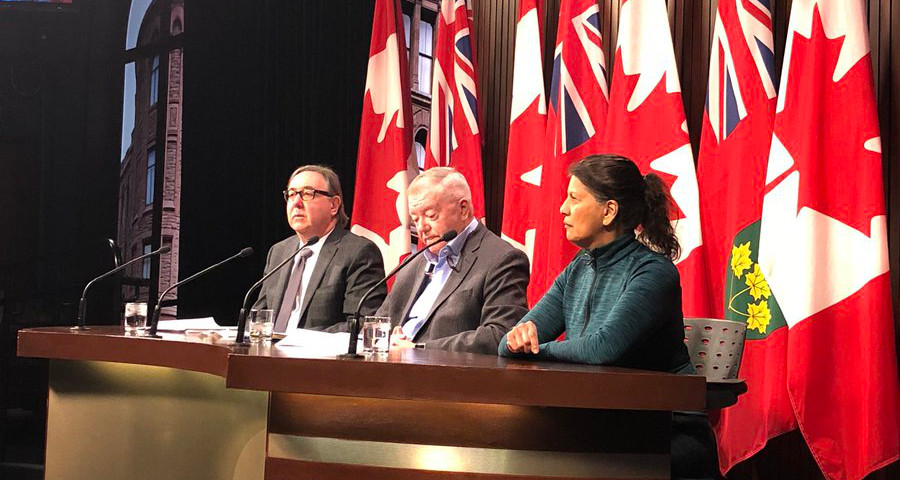TORONTO – Advocacy groups are calling on the Ontario government to close what they call loopholes in the province’s housing law that they say allow landlords to offload maintenance costs onto tenants.

The groups – the Advocacy Centre for Tenants Ontario, the Federation of Metro Tenants’ Associations and the Association of Community Organizations for Reform Now – say landlords are taking advantage of rules that allow them to apply for government permission to increase rent beyond the legally permitted amount.
The groups say those provisions are meant to help cover costs of necessary capital projects but are instead being used to pay for regular maintenance work or cosmetic renovations that improve the property’s value but don’t benefit tenants.
As a result, they say, lower-income tenants are being pushed out of their homes.
The groups say the province must clarify what work is deemed necessary and require landlords to notify tenants before they start any repairs for which they plan to apply for an additional rent increase.
READ MORE: Ontario landlords able to increase rent up to 1.8 per cent next year

Get daily National news
A spokesman for Housing Minister Peter Milczyn said the government appreciates the feedback from the groups, but did not say whether officials would revisit the rules on rent increases.
“We are always looking for ways to make the rental market more fair for everyone,” Matt Ostergard said, noting the government introduced a standardized lease agreement last week, that takes effect at the end of April, to protect tenants from illegal terms.
Last year the province extended rent control to all residential properties, setting an annual cap on rent increases tied to the Consumer Price Index. The cap for 2018 is 1.8 per cent.
But a policy in the Residential Tenancies Act allows property owners and managers to apply to the Landlord and Tenant Board for the right to raise rent beyond the cap in order to recoup costs of certain capital expenditures or “extraordinary” increases in tax.
READ MORE: Rent doubles for tenants of 2 west-end Toronto condos, province says reform coming
In order to qualify, a landlord must show that their capital expenses were made to keep the property “in a good state of repair,” protect the “physical integrity” of the building, improve energy or water conservation, or maintain or increase security or provide access to people with disabilities.
In many cases, however, landlords hold off on doing maintenance until they face significant repairs and then lump it all together to apply for permission to increase rent beyond the cap, the groups said.
“Landlords, especially large landlords that operate across the country, have found ways to exploit those rules to do work on buildings that creates no additional value for tenants yet creates additional value in the landlord’s pockets because they’re able to use the rent rules to force rent increases on the tenants,” said Kenneth Hale, legal director for the Advocacy Centre for Tenants Ontario.
“As maintenance is cut back in individual units, the investment, the money is going into cosmetic repairs – replacing things in the lobby, redoing the balconies, fixing up the grounds in order to attract new tenants,” he said.
“Tenants are being pushed out, rents are going up and these tenants who are being pushed out have nowhere to go.”
Landlords have said the process helps them perform necessary maintenance on their properties, and that the province should be focusing on poverty reduction efforts rather than just rent control.
The push to revisit housing rules comes as tenants in a high-rise in a rapidly gentrifying Toronto neighbourhood continue to stage a rent strike over their landlord’s application to increase rent nearly double the legal amount.
Tenants in the building said Tuesday they have received eviction notices from the property manager, Nuspor Investments. The company was not immediately available for comment.







Comments